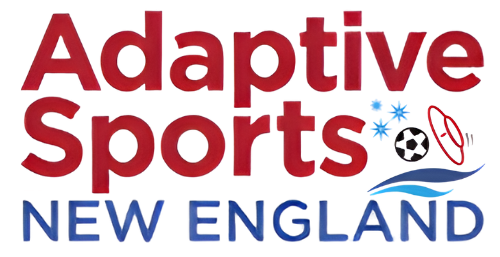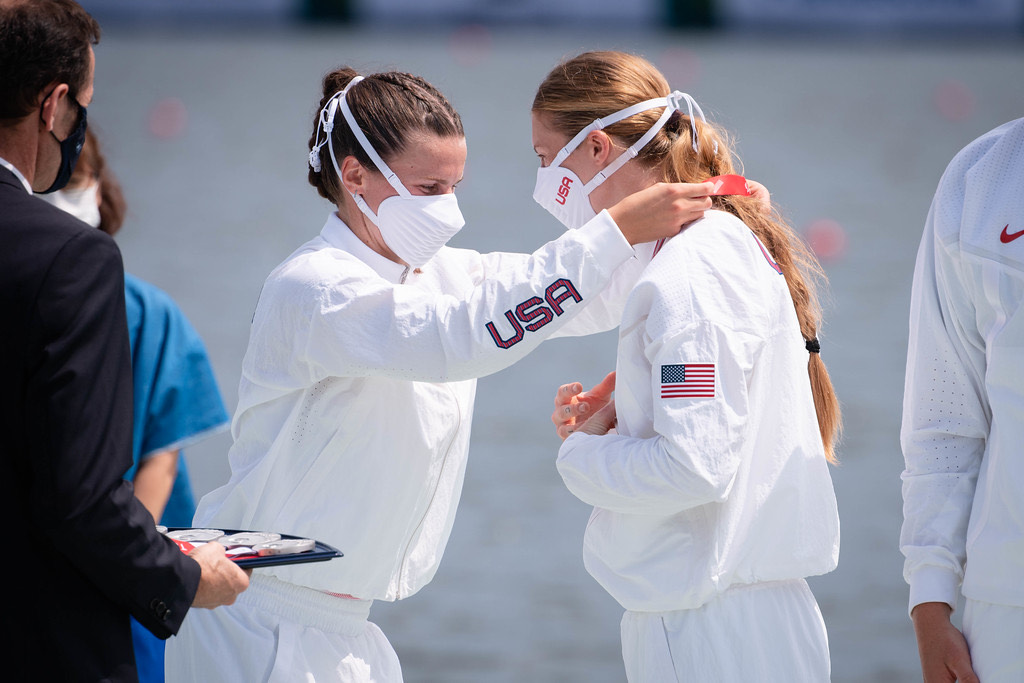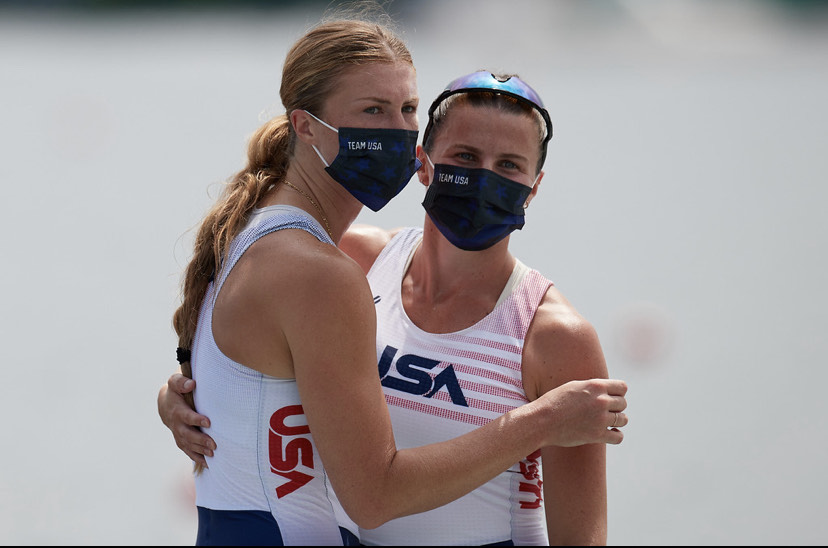By Dara Zall Kelly
New England is home to many inspiring athletes, who live and train here preparing for their opportunity to compete on the national or global stage. This fall, fresh off racing the Head of the Charles Regatta, Allie Reilly, and Dani Hansen, two local rowers who raced and won silver medals at the Tokyo Paralympic Games caught up with Adaptive Sports New England to share how they got to where they are and why they believe rowing can be a great sport for adaptive athletes.
Before they got into rowing, Allie, who hails from Rhode Island, and Dani, a California native, excelled in other sports. Allie ran track and played high school lacrosse, while Dani shined as a softball and volleyball star. In college they rowed division 1, both similarly looking at the water and then within themselves and thinking “I like a challenge.”
After college, they were encouraged to take on para rowing. They were drawn to the team aspect and found great meaning in sharing a goal with other athletes. In rowing, boats can be modified to fit any athlete, but the unique challenge is learning to work together with other athletes that have different adaptations in the boat. The rowing must be in synch. Every stroke measured and executed with strength and precision.
In training for the Paralympics, learning to work in harmony as a team was paramount.
To help, Allie and Dani’s coaches would have them train from the perspective of another adaptive athlete. For example, one day, they rowed with their eyes closed to experience the boat from the perspective of their visually impaired teammate. Together, they learned to move in harmony as a team.
Allie and Dani’s team in Tokyo, as well as several other para rowers, trained here in Boston, at Community Rowing Inc. The center along the Charles River is the only national training center for rowers with disabilities. It also hosts the Paralympics National Training Camp. Their team, which also included coxswain Karen Petrik (Glastonbury, Conn.), John Tanguay (Pennington, N.J) and Charley Nordin (Alameda, Calif.), secured the silver in the PR3 mixed four class match in Tokyo this August. Great Britain took the gold, and France the bronze.
Both Allie and Dani were thrilled with their results, especially after the challenging year that training in a global pandemic presented. A they reflected on their experiences Dani spoke freely of how she conquered her doubts and shares the wisdom for para athletes in the making. “Only you know the most about your adaptation, so it is up to you to be confident, be different, and be a trailblazer in your field, she says. “There is no “I can’t”, but simply the notion that you can, but you just haven’t figured it out yet.”
Allie, who competed in her first Paralympics in Tokyo, was inspired by meeting other adaptive athletes. Sherecalls the experience at the cafeteria in the Olympic village, where she looked around to see everyone eating, in ways that best suits them. “Everyone has differences. But no one has limitations, she says. “They have learned to master their craft—be it eating or training or racing—by adapting to their own bodies.”
As their outdoor rowing season comes to an end in New England, both athletes are continuing to inspire other athletes. Allie, who is a medical assistant at Mass General Hospital, is a part-time coach for Adaptive Sports New England’s para rowing partner organization Community Rowing Inc. (CRI). Dani is the Lead Athlete at Hydrow, a “Live Outdoor Reality” rower program that was designed with inclusivity in mind.
Both women show us that New England is lucky not just to be home to world-class athletes, but to athletes who continue to serve as role models for their sport and youth adaptive athletes, teaching them how to set and aspire to achieve big goals in sport and life.
Kate Plourd Johnson contributed to this article.






Comments are closed